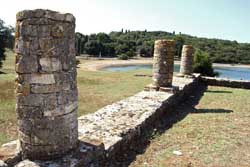Exploring non-urban Roman settlements
Non-urban settlements during the time of Roman colonial expansion, namely the 4th to 2nd centuries BC, have until now not been widely identified and studied due to scholarly bias. Therefore, a major challenge presents itself for scholarship in this field today. An innovative approach has been applied by the EU-funded WORLDVIL project to compare colonial settlement organisation with contemporary non-colonial control areas of the Roman Republic in central and southern Italy. Special emphasis was placed on non-urban settlements. Through an intensive archaeological field survey and geophysical analysis, the project set out to examine a new concept of early Roman colonisation not based on an urban model. The team reviewed archaeological data of two colonial territories to systematically compare settlement patterns in two similar landscapes that were not colonised. The field surveys have led to the discovery of numerous previously unknown sites. Based on promising results, an expansion of the project is planned for the future. A research group was created to target a much larger scope that expands to the regions of Molise and Basilicata. Results have been disseminated in Europe and the United States via presentations, reports and publications.
Keywords
Roman settlements, colonial expansion, Roman Republic, archaeological

